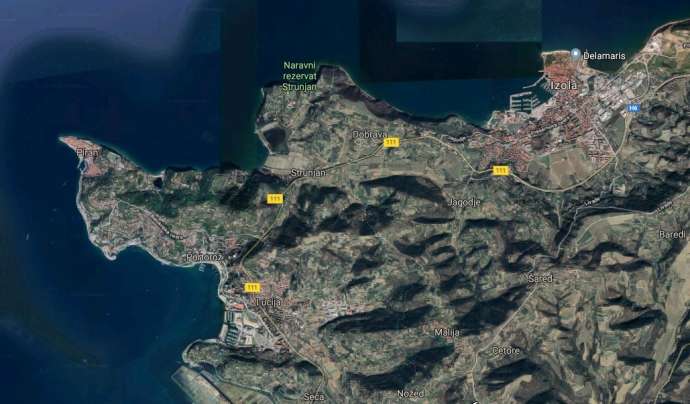STA, 26 June 2019 - The only water supply system for the entire Slovenian coast may be in jeopardy after a kerosene-carrying train derailed Tuesday afternoon near one of the potable water sources. Measures have been taken to prevent the worst, but there is no doubt that the kerosene will reach the groundwater with the first strong rainfall at the latest.
The regional water system operator, Rižanski vodovod, supplies more than 87,000 residents, but the figure grows much higher during the summer season, to about 130,000 people.
Slovenia is bracing for a heatwave expected to peak in the second half of the week and the coast is a popular destination for many seeking to respite from scorching temperatures.
Following an emergency meeting this morning, called in the wake of the spill, Rižanski Vodovod urged its clients to conserve water.
The porous Kras terrain is notoriously tricky when it comes to water flow and Nataša Viršek Ravbar of the Karst Research Institute of the Research Centre of the Academy of Sciences and Arts (ZRC SAZU) told the STA that it is only a matter of time before the oil reaches the nearest water source.
Once a pollutant is in the Karstic ground, there is nothing anybody can do, she said. As fas as she knows, the tunnel where the accident happened does not have built-in oil catchers.
Currently, efforts are under way to pump out the spilled kerosene from the tunnel near the village of Hrastovlje. It is estimated that some 10,000 litres of the fuel spilled as several wagons derailed last afternoon.
Viršek Ravbar believes that the only way to ensure quality of water is constant monitoring. The oil will likely reach the water source during the next rainfall and may remain polluted for a long time.
Rižanski Vodovod said that direct sourcing had been suspended from the jeopardised point of intake at the source of the River Rižana and that the source was being monitored.
Stressing that people's health is the most important thing, the company, owned by the four municipalities it services, also increased the intake of water from other, safe sources and scaled up pumping from the deepest water sources.
The water supplier also expressed belief that thorough clean-up works would take priority over haste to relaunch traffic. The accident halted not only passenger transport but also cargo transport to and from the port of Koper, the country's only seaport.
Environment Minister Simon Zajc, who is abroad today, is to visit the site tomorrow.






